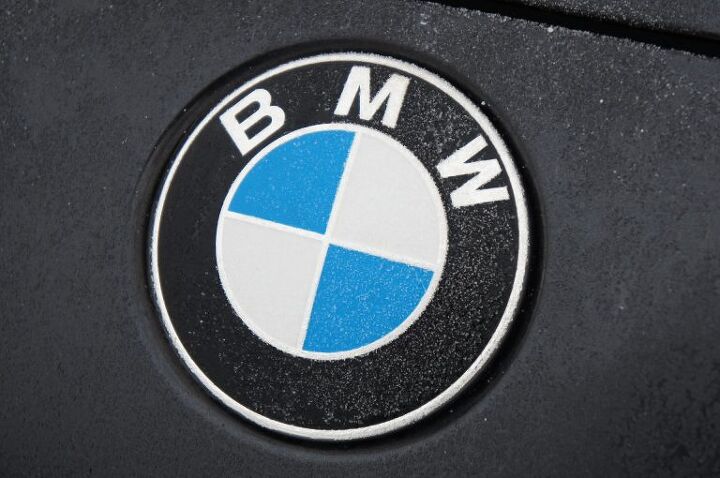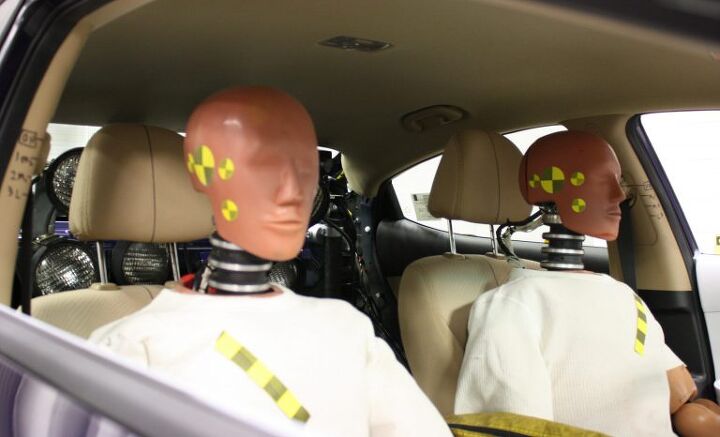#RegulatoryIssues
Texas Cretins Are Revoking Titles for Kit Cars and Dune Buggies
In 2013, Texas’ Department of Motor Vehicles began revoking titles on newly built dune buggies. While that was already a bit of a dick move, the state was at least good enough to grandfather-in existing vehicles. However, that has changed in recent months now that the state’s DMV seems keen on enforcing Texas Administrative Rule 217.3 (Section 6).
The mandate, which appears only to exist to make automotive hobbyists sad, came into rule in March of 2015. But it has picked up lot of steam since then, denying titles on dune buggies and kit cars that had previously received them without trouble. As a result, enthusiasts are starting to organize in the hopes of lobbying the state to re-legalize the vehicles as others sell off their beloved rides — fearful that nobody would buy them in Texas since they aren’t street-legal anymore.
BMW Raided in German Cartel Investigation, Daimler Seeks Immunity
Back in July, German authorities became concerned that the country’s manufacturers had been operating one of the largest automotive cartels in history. With many auto executives still under the microscope for diesel emission manipulation, combined with inter-familial strife between the Piech and Porsche clans, Germany’s auto industry was starting to resemble a PG version of the film Goodfellas — with a dash of Dallas, for flavor.
Despite some rather serious accusations, nothing really came of the cartel investigation. We were beginning to wonder if it was much ado about nothing. But Germany’s antitrust officials hadn’t forgotten — they were simply biding their time during preliminary investigations into corporate collusion and price-fixing. Earlier this week, they made their big move and raided BMW’s headquarters.
New U.S. Bill Would Update Automotive Rules, Allowing for Non-human Drivers
When the automobile came into its own, there wasn’t really a place for it. Roads had been reserved for foot traffic and horses for hundreds of years before the invention of the internal combustion engines. Pedestrian injuries were high until they were partitioned onto the sidewalk. Likewise, it was some time before the millions of horses were be rounded up, placed into a giant pit, and shot to death by 20th-century motorists.
However, the industry didn’t really take safety into account until Ralph Nader wrote Unsafe at Any Speed and holding automakers accountable for safety suddenly became fashionable — helping America pass the National Traffic and Motor Vehicle Safety Act in 1966 and subsequent legislation. Granted, vehicular fatality rates still fell dramatically between 1925 and 1965, but the regulatory influence didn’t skyrocket until after Nader’s analysis of the industry.
With autonomous vehicles positioned to change the way we “drive,” the long-established and ever-growing rulebook may need revisions. In July, a collective of automakers, suppliers, engineers, and consumer groups, calling themselves the Coalition for Future Mobility issued a statement urging Congress to consider legislation it deemed “critical to the United States continuing to be a place of innovation and development for the life-saving technologies.” Fast forward to August, and there is already a bill on the table.
NHTSA Poised for Potential Deregulation Bonanza on Automotive Safety Aids
We knew the Trump administration wanted to deregulate the automotive industry in order to free it from any production hangups, be it imagined or genuine. However, some of the items under consideration for potential elimination are safety features that seem silly to go without. At the top of that list is the requirement that all electrically driven vehicles must emit noise to alert pedestrians to their presence.
However, this isn’t the only safety feature at risk of becoming an optional extra. In budget documents provided to Congress, the National Highway Traffic Safety Administration specified it is considering six separate areas for deregulation. Those include the modern standard for rear-view mirrors and backup cameras in passenger cars, mandatory electronic stability-control units for heavy trucks, and a rule allowing car dealers to install switches to deactivate airbags in customer vehicles.
While some of the rules could be abolished entirely, others are more likely to undergo some gentle retooling to provide automakers greater flexibility. Automakers have long pressed for the revamp of some antiquated, NHTSA-administered safety standards in order to permit the introduction of newer technologies. Still, eliminating any safety mandate is likely to raise the ire of consumer safety advocates, whether the end goal is well-intentioned or not.



















Recent Comments